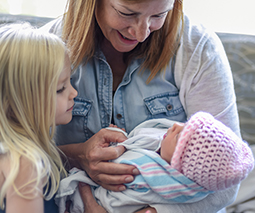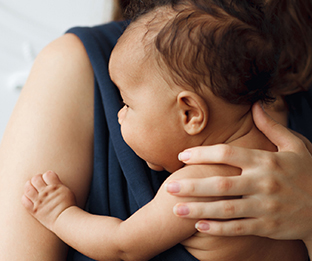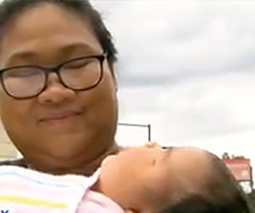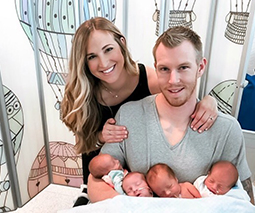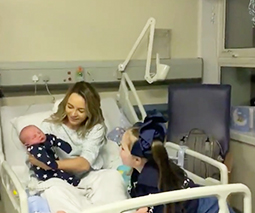Early arrival: Practical ways you can help the parents of tiny, premmie babies

Writer Elise Cooper spoke to the CEO of Miracle Babies Foundation about the experience of parenting a premature baby – and ways family and friends can help lighten the load.
Emotional rollercoaster
When your baby comes before the due date, the spectrum of new bub emotion is multiplied a thousand times over. The precious preparation time before they arrive is no longer; those weeks relatively to yourself off work, waiting and nesting.
Many new parents can feel robbed of that time, guilty that they feel robbed and not overjoyed that their bub is here, and some even feel a guilt that they weren’t able to carry to full term.
While those feelings aren’t helpful, they’re also quite common amongst parents of pre-term babies.

Make a difference
Kylie Pussell is the CEO of Miracle Babies Foundation. She’s experienced the grief and emotional struggle of a premature birth, and lost babies of her own.
In her work as a counsellor Kylie has seen friends of premmie parents not know how best to help.
Read more about premature babies:
- Everything you need to know about premature babies
- 25 helpful ways to support the family of a premature baby
- My twins were premature but I couldn’t wait to get them out
When bub arrives pre-term, there are some practical things that friends and families can offer to do, outside of the choccies and well wishes cards, that can make a life time of difference to premmie parents.
Listen to Kylie on Kinderling Conversation
Kylie’s main message is to let the parents lead you. Some parents of premmie babies find they just want to be left alone for those first days and weeks of being at home. Others really need a helping hand.
“If you’ve got family and friends around that can help at that time, that’s fantastic. We have some people that like to feel that they’re still doing all that and sometimes that’s part of them processing what they’re going through as well, so it’s really about the parents actually guiding us in the community as to what they need at that time,” Kylie says.
“It’s as simple as offering to help out, but not with a vague ‘let me know if there’s anything I can do’, because as well intentioned as it may be, it’s a phrase that translates to ‘tell me what to do and when to do it’ to a new parent.”

How to help
There are three main ways you can help.
1. Offer to do specific tasks
The reason for doing this is it removes the emotional labour of having to come up with jobs that you can help with. Kylie explains that there are plenty of little things you can offer to do from the hospital to home.
2. At the hospital
- Substitute a bouquet for magazines
- Bring mum some nice juices for boosting the immune system
- Make a list of good podcasts (like Kinderling Conversation!)
- Buy them an audio book
- Get them a nice scarf – sitting in an air-conditioned NICU all day can get chilly
3. At home
- Put on a load of washing, dry, fold and put away
- Clean the toilet
- Mow the lawn, water plants
- Change the bed sheets
- If this isn’t their first child, offer to babysit or take their other children to the park for an hour or two. Never underestimate the power of a cup of tea with a partner without interruption from a toddler.
- Find some good quality tiny person clothes. Premmie parents often haven’t had time to buy clothes that would fit them once they come home.

Give them space
It’s also important to remember that those first few weeks when families come home aren’t just confronting because of the stalling start they had. When parents come home they’re no longer surrounded by medical staff 24/7 to ask questions to about everything that’s worrying them.
Send up a flare to your friends! Remind them they’re loved. Who knows, they’re probably – in fact, almost definitely – going to be awake breastfeeding, changing, or lamenting the lost few weeks they didn’t get to themselves to watch bad rom-coms and do some hard core nesting.
Even if your friends are the type of parents to not accept help, or they just want to be in their own space, a trusty text message of comfort or a funny video of cats doing adorable things will never go astray.
This post was originally published on Kinderling Kids Radio. Download the Kinderling app for more great stories.



